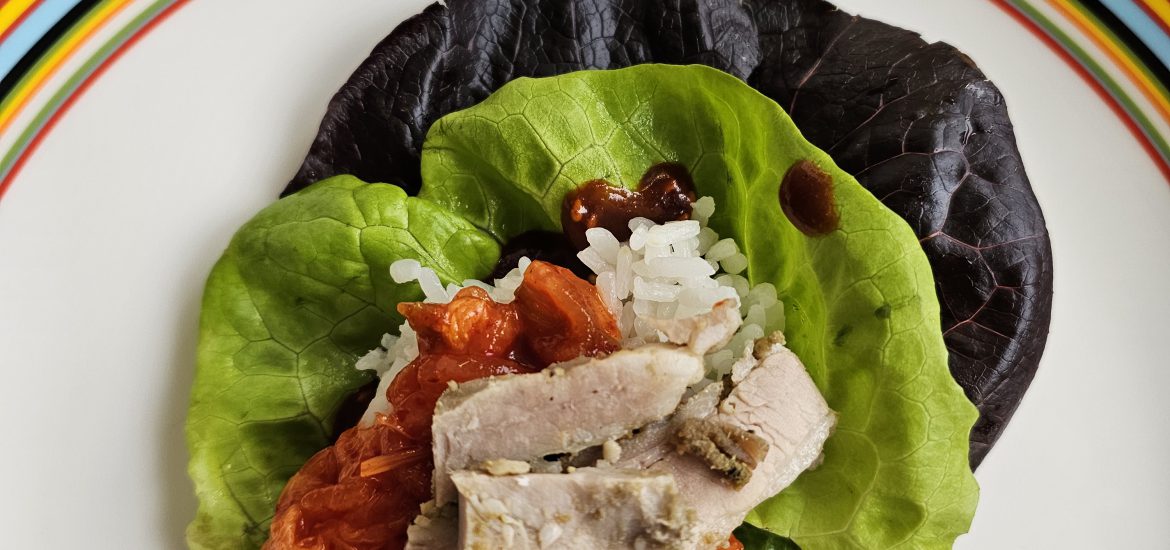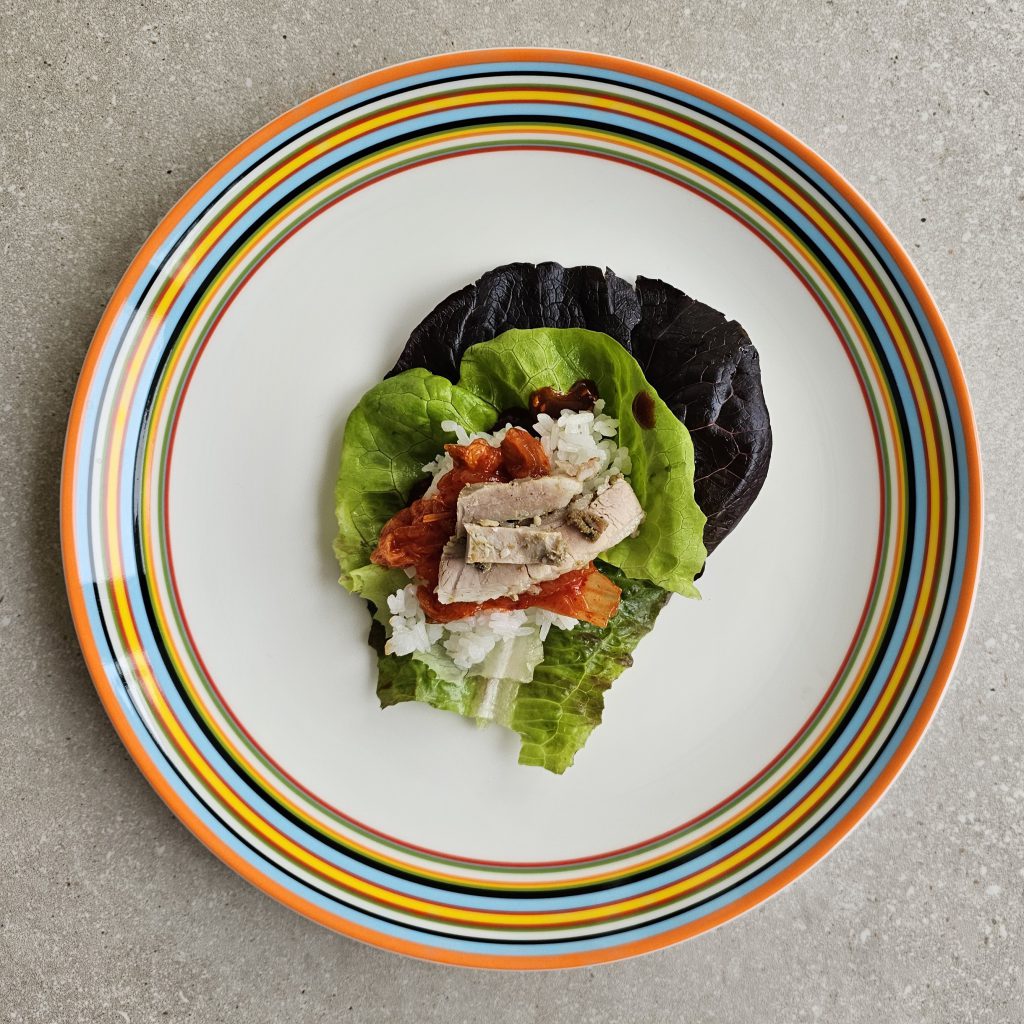
Sunday 03 December: time for one quick post as we finish up here in London.
Each time I pack to leave for a trip away from home, I relish the idea of domestic staff, to finish picking up after me. I don’t have this luxury, so it is always very stressful. Sheets need to be changed and bathrooms cleaned (I do not want to do this upon my return), clothes washed, dried and ironed, limp food put out for composting, recycling sorted, books put away. This time of the year there are Christmas cards to write. I sign 35, and Mr Gochugaru signs one – to his first boss when he started at the company 35 years ago.
And there is the clothes packing which I have not started. Christmas presents for the children? Thank God we have Chinese New Year in February, when they can all receive red packets instead.
When Junior 3 suggested we have 쌈 ssam for lunch it was a good use of the leftover porchetta from our early Christmas lunch, as well as a reminder of what we are doing this next 24 hours. Ssam is the Korean word for wrap, and translated to food this is is thin slices of grilled or boiled meat, with a spoonful of rice, a touch of ssamjang (sauce), some kimchi or shredded pickles, all wrapped up in salad leaves. As I eat I think of all the jobs that need finishing before we can leave: a wrapping up of our lives here for the year. As the weather is extremely cold, it is also a reminder that we must wrap up warm as we leave the house to run the remaining errands on our list.
Besides the sliced cooked pork, here are the main items in our ssam: salad leaves, cabbage kimchi and fragrant garlic from yesterday’s olive oil roast potatoes
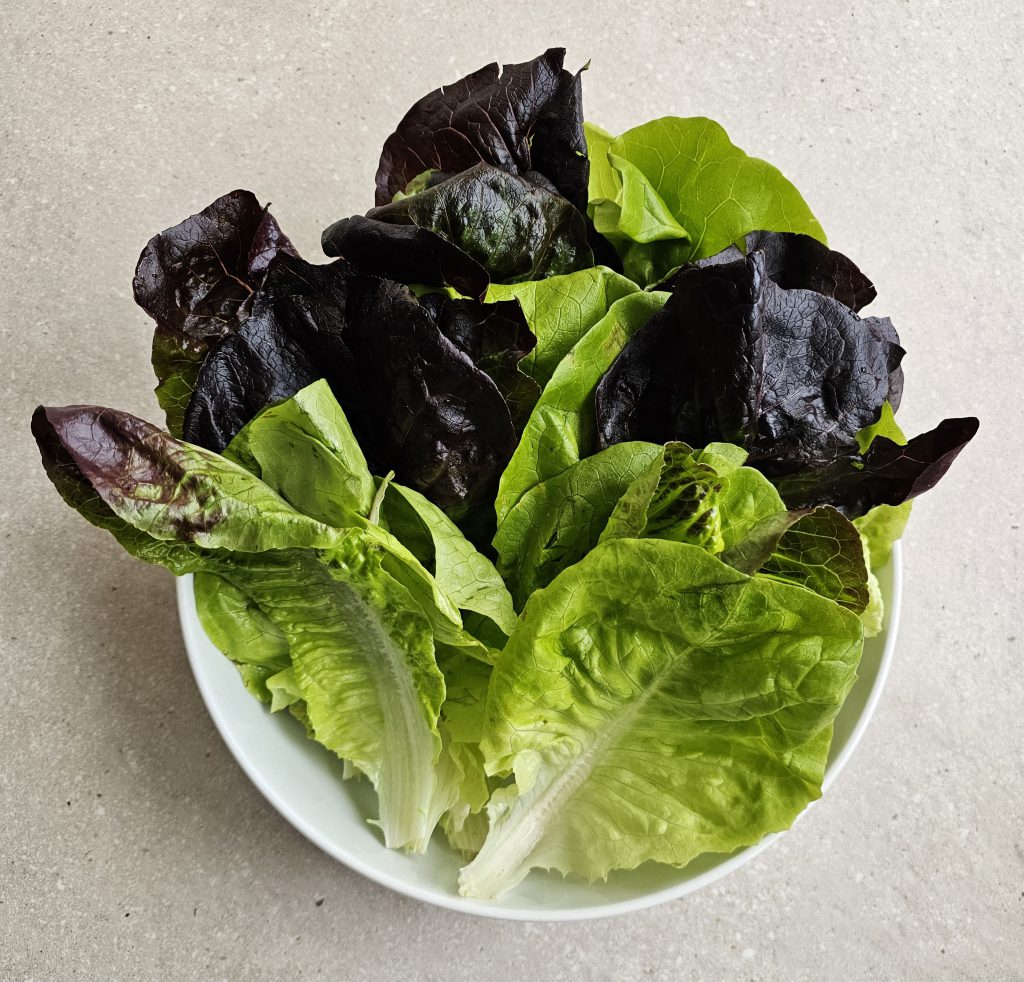
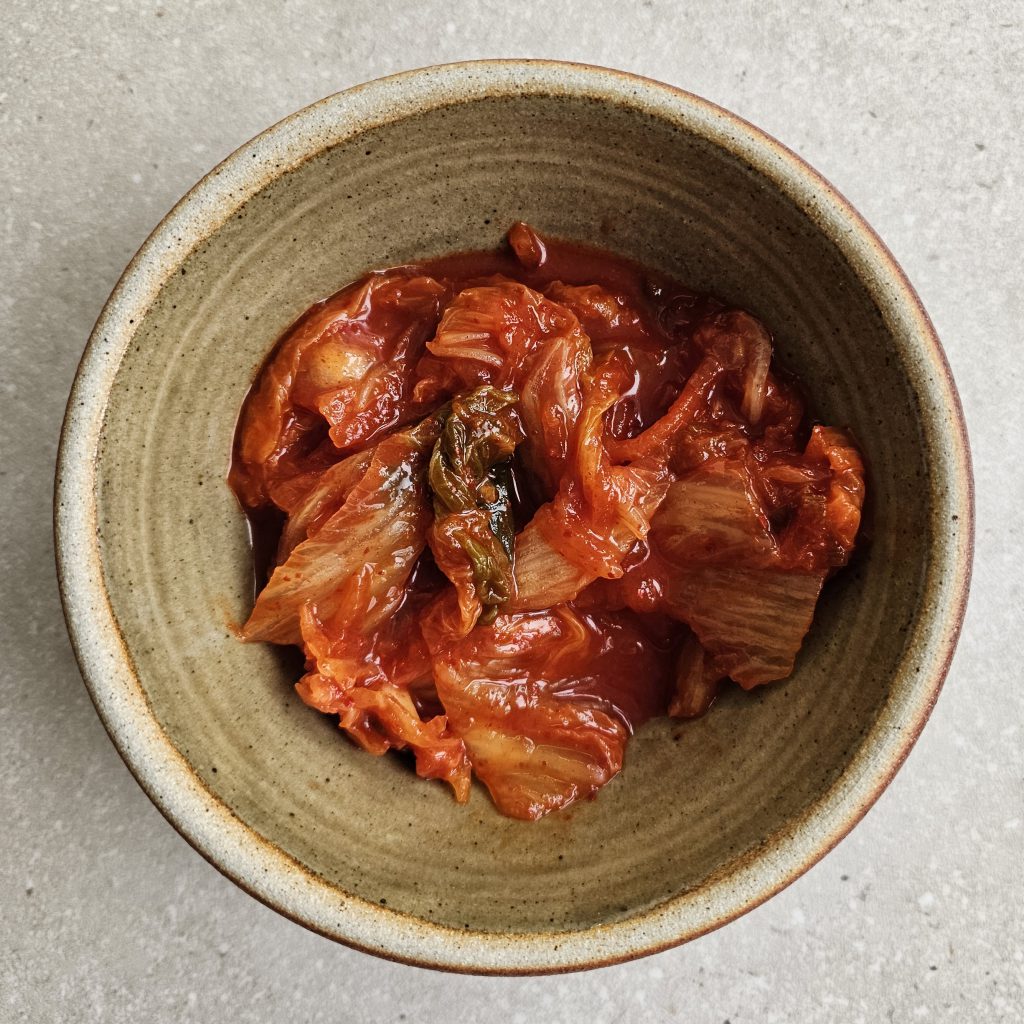
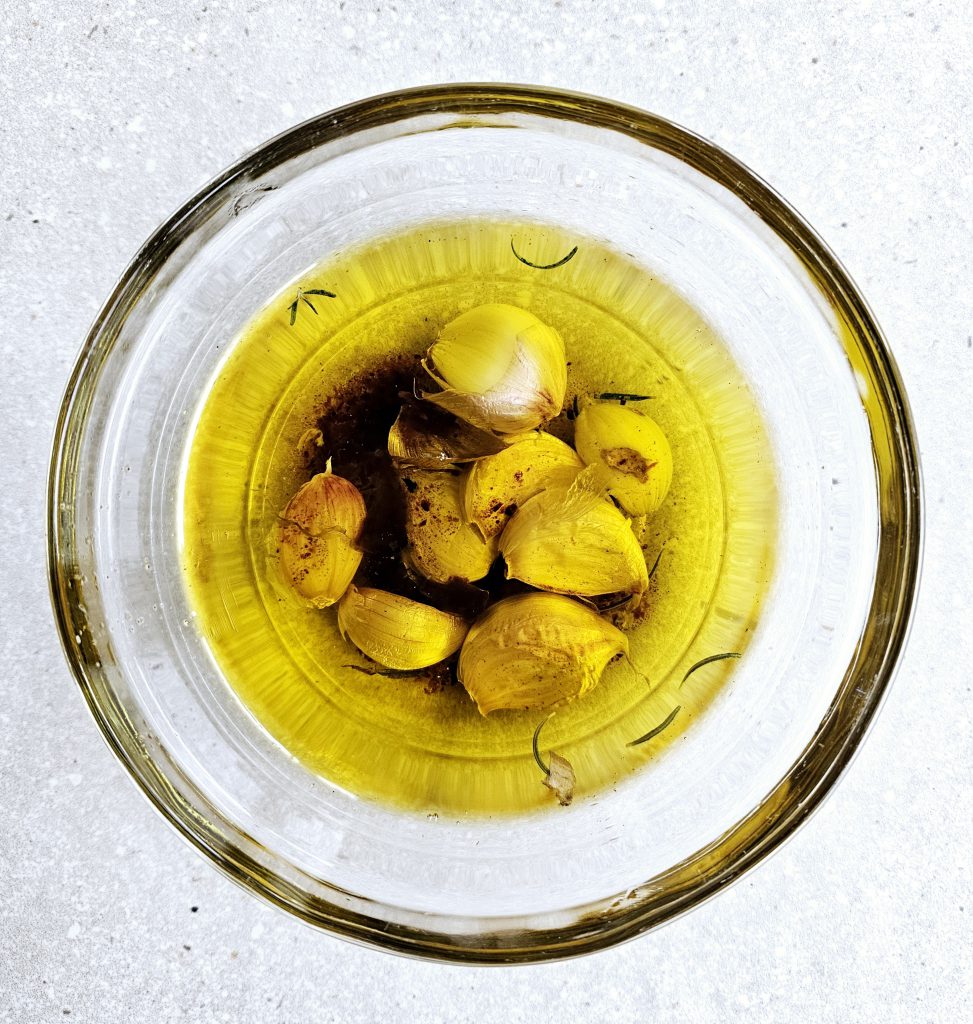
잘 먹겠습니다 jal meokkessumnida / I will eat well as the Koreans say before tucking in
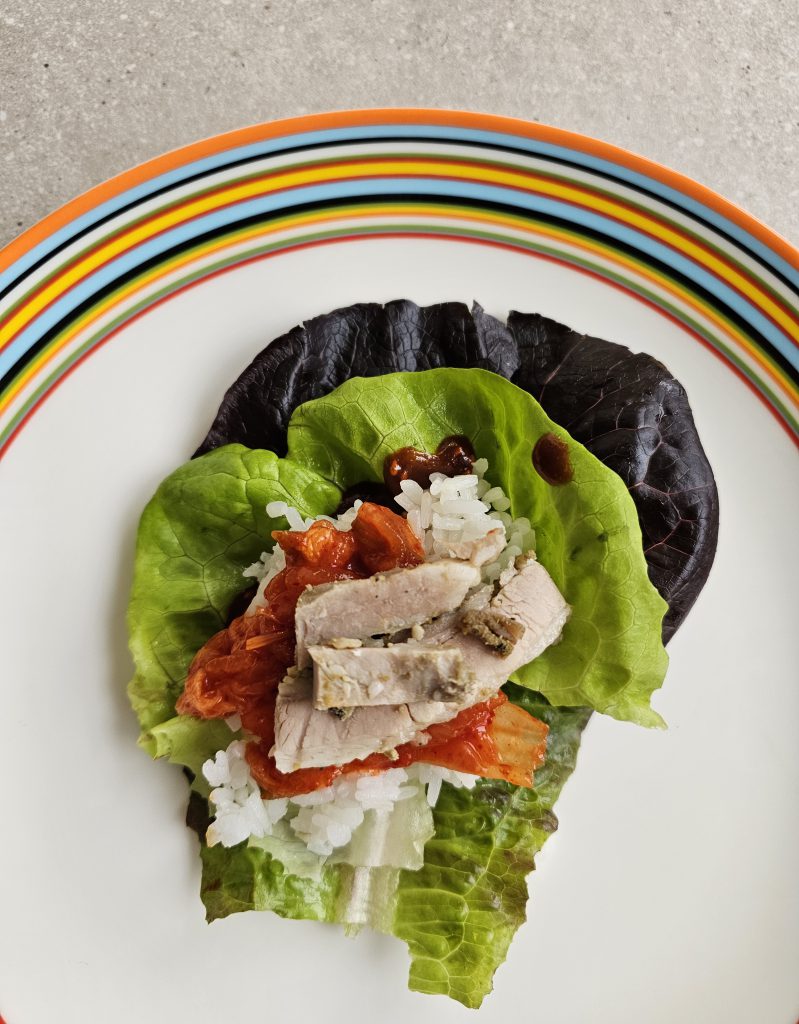
To make the ssamjang (sauce), the proportions are 6 tablespoons gochujang, 3 tablespoons doenjang, 1 tablespoon toasted sesame oil, 1 teaspoon toasted sesame seeds. To make pickles, finely shred carrots and radish (mooli) and steep in some rice vinegar with a sliced red chilli, sugar and a little salt. This can be made the night before but if you need it in an instant, try to leave steep for at least half an hour. The salad leaves should be washed of all sand and dried thoroughly. One of my pet dislikes is wet salad leaves.
As a means of using up any leftover roast meat from a large roast meal, I can heartily recommend ssam. The salad leaves are refreshing, the kimchi/ pickles adds a hit of spicy sourness and rice, of course, is good at any time.
